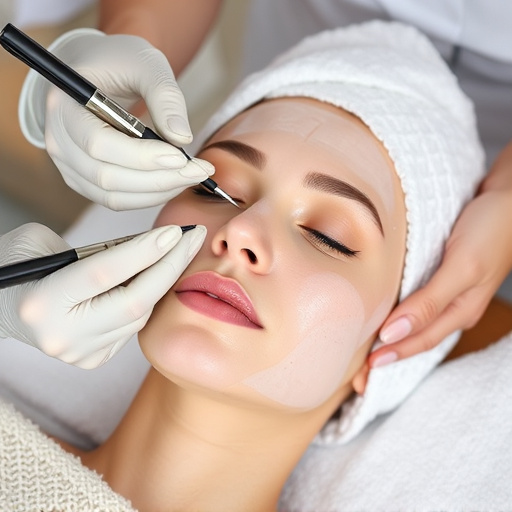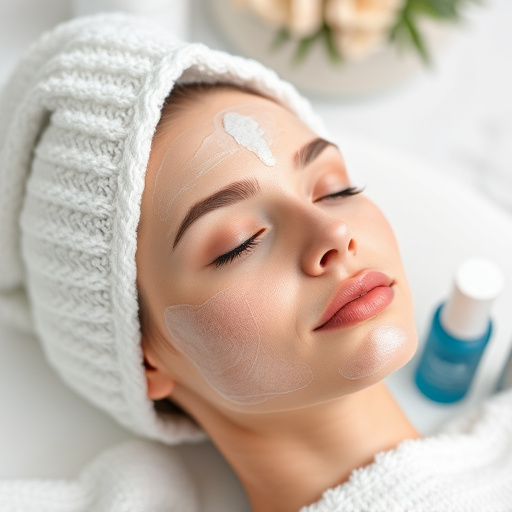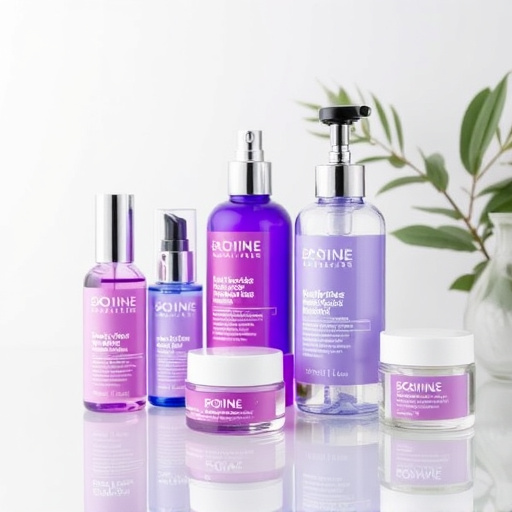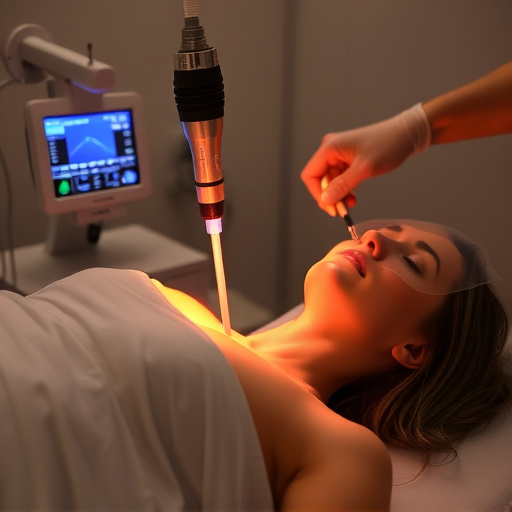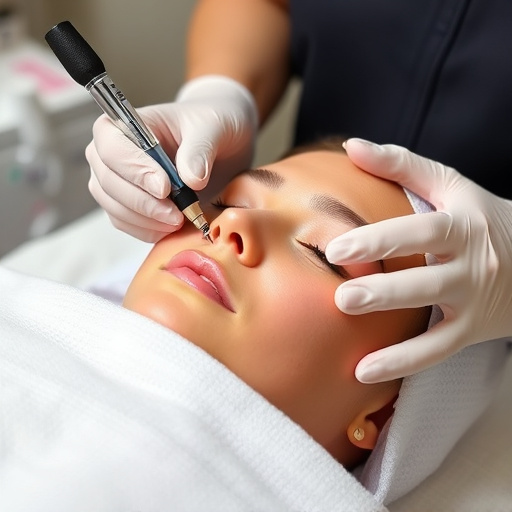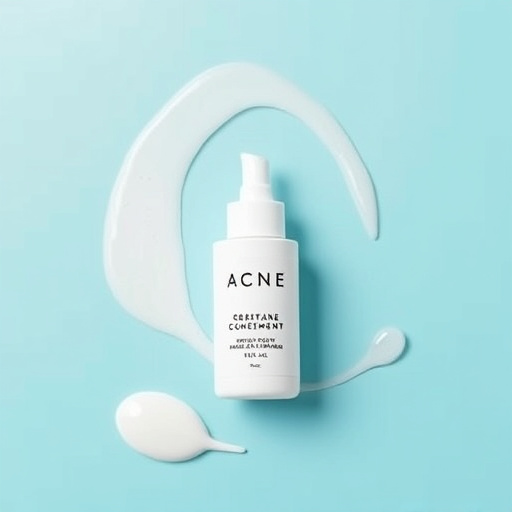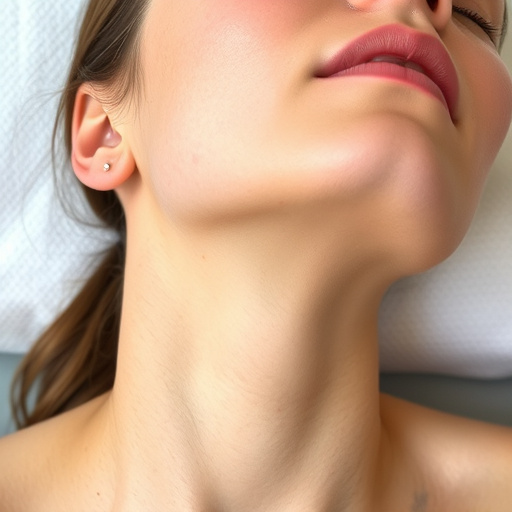Acne scars result from inflammation and damage during acne breakouts, disrupting collagen production. Effective acne scar treatment targets this root cause through non-surgical methods like chemical peels, microdermabrasion, laser treatments, and topical treatments boosting collagen synthesis. Key ingredients like retinoids and vitamin C derivatives stimulate collagen, accelerate cell turnover, and protect the skin. Non-invasive procedures such as microneedling, combined with vitamin C and retinoid treatments, offer gentle yet powerful solutions for minimizing scars, improving skin texture, and achieving healthier, more radiant skin.
Acne scars can leave lasting marks, but innovative treatments offer hope for restoration. This article delves into effective strategies to combat acne scars by boosting collagen production, a key player in skin healing and firmness. We explore the science behind collagen’s connection to acne scars, examine topical treatments focused on collagen stimulation, and uncover non-invasive procedures revolutionizing scar reduction. Discover how these advanced methods can transform your skin, providing a smoother, more even complexion.
- Understanding Acne Scars and Collagen: The Science Behind the Connection
- Topical Treatments for Acne Scar Reduction: A Focus on Collagen-Boosting Options
- Non-Invasive Procedures: Unlocking New Possibilities in Acne Scar Treatment
Understanding Acne Scars and Collagen: The Science Behind the Connection
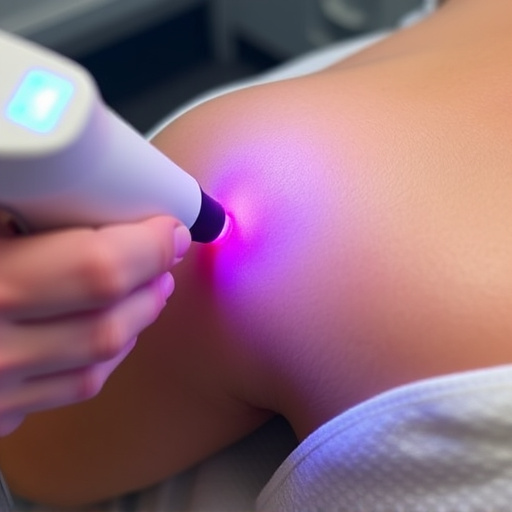
Acne scars are a result of inflammation and damage to the skin’s deeper layers during an acne breakout. Collagen, a key protein responsible for skin elasticity and structure, is often affected in this process. When acne clears up, the skin may not produce enough collagen to restore its original texture, leading to noticeable scarring. Understanding this connection between acne scars and collagen is crucial when exploring effective acne scar treatment options.
The science behind the relationship reveals that stimulating collagen production can significantly improve the appearance of acne scars. Professional skincare experts recommend various acne treatments, including non-surgical methods, that target this specific issue. These methods often involve technologies like chemical peels, microdermabrasion, or advanced laser treatments designed to promote skin cell turnover and encourage the body’s natural collagen synthesis. By addressing the underlying cause of scarring, these acne scar treatment options offer a long-lasting solution for achieving smoother, more even skin.
Topical Treatments for Acne Scar Reduction: A Focus on Collagen-Boosting Options
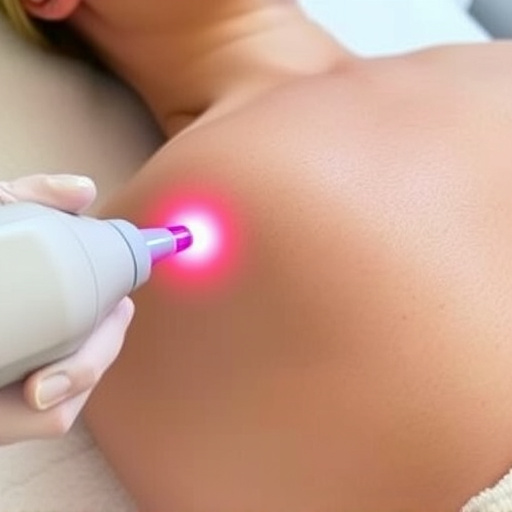
Topical treatments have emerged as a powerful tool in the quest for effective acne scar treatment. Among various options, those that focus on boosting collagen production stand out. Collagen is a crucial protein for skin health and elasticity, making it an essential target for reducing the appearance of scars.
Several topical creams and serums now incorporate active ingredients known to stimulate collagen synthesis. These include retinoids, vitamin C derivatives, and certain peptides. For instance, retinoids like tretinoin can accelerate cell turnover, encouraging skin rejuvenation and scar minimization. Meanwhile, vitamin C serums act as powerful antioxidants, protecting the skin while also promoting collagen creation, which helps to fill in depressed scar tissue and improve overall skin texture.
Non-Invasive Procedures: Unlocking New Possibilities in Acne Scar Treatment
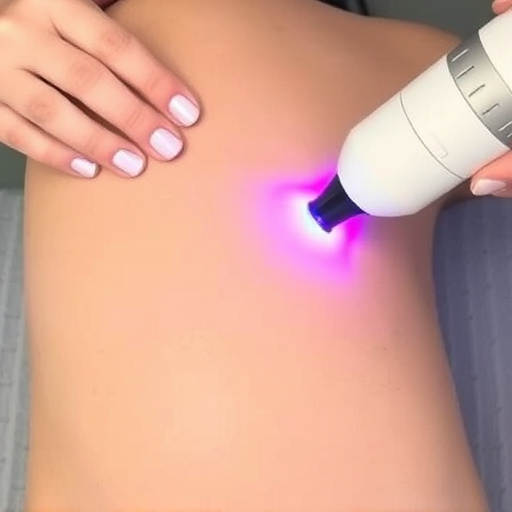
Non-invasive procedures are revolutionizing the landscape of acne scar treatment, offering promising solutions for those seeking to unlock clear, radiant skin. These advanced techniques have emerged as game changers, providing effective yet gentle approaches to address scarring left by acne. By targeting specific areas and stimulating the skin’s natural healing processes, non-invasive treatments have garnered significant attention in the dermatology community.
One prominent method is the use of microneedling, which involves pricking the skin with fine needles to induce collagen production. This procedure not only enhances skin texture but also encourages the growth of new, healthy skin cells. Additionally, certain facial treatments incorporate ingredients like vitamin C and retinoids for their potent anti-inflammatory properties, aiding in skin brightening and wrinkle reduction. These non-invasive procedures offer a holistic approach, addressing both the physical and aesthetic aspects of acne scar management.
Acne scars can significantly impact an individual’s self-esteem, but advancements in skincare offer hope. Understanding the science behind collagen’s role in healing has led to innovative treatments. From topical creams rich in active ingredients to non-invasive procedures, there are now effective ways to boost collagen production and minimize acne scar visibility. By exploring these options, individuals can take control of their skin health and embrace a clearer, more confident future. This comprehensive approach to acne scar treatment ensures that everyone has access to the tools needed to achieve smoother, healthier skin.





